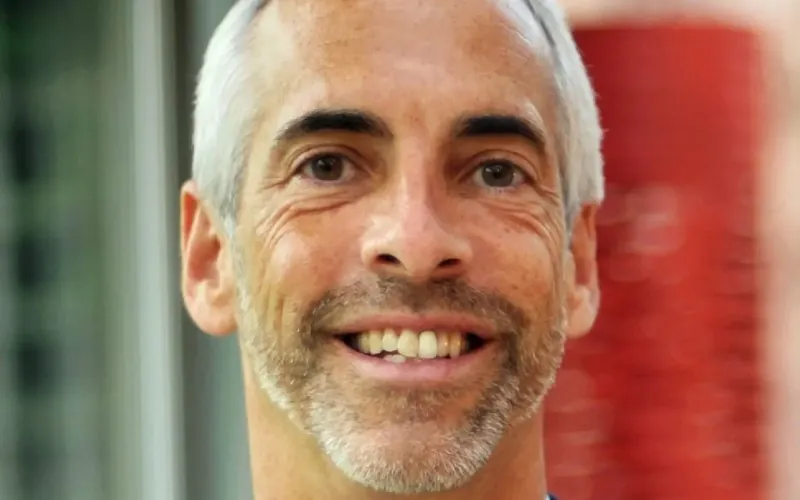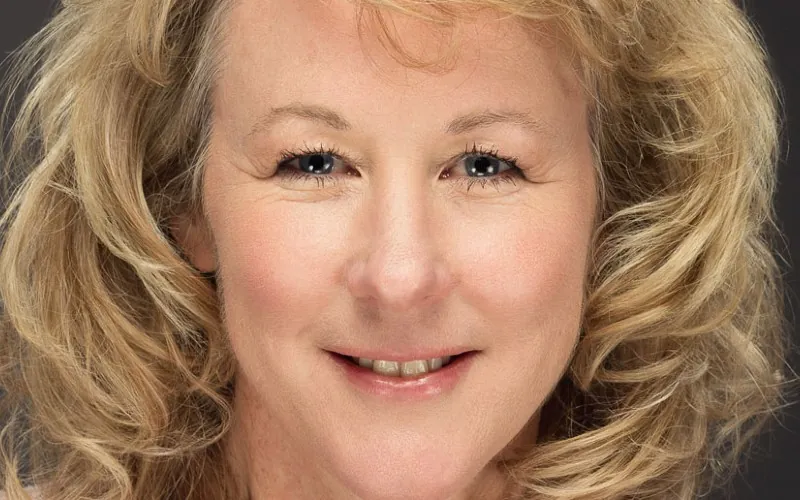Taxes will rise by £40 billion to plug the “black hole” in the UK’s finances while there were funding pledges for technology R&D in the Autumn Budget.
Around £25bn of this £40bn will be from a rise in employers’ National Insurance contributions as the government pledged to fix the nation’s struggling NHS, public services and transport infrastructure.
Chancellor Rachel Reeves, revealing Labour’s first Budget since coming to power this summer, said the country needed “responsible leadership” after 14 years of Conservative rule.
“We must restore economic stability… the party opposite failed our country. Their austerity broke our National Health Service. The British people have inherited their failure,” she told the House of Commons.
“They called an election to avoid making difficult choices.”
Reeves said the freeze on income tax thresholds will end in 2028-29 but improved tax relief for creative industries – particularly VFX in TV and film – and allocated £25m to the North East Combined Authority to redevelop the Crown Works Studios site in Sunderland, projected to create 8,000 jobs.
The Chancellor also pledged £500m to improve mobile broadband coverage and said regional mayors would gain greater independence from Westminster, with Greater Manchester and the West Midlands the first authorities to receive integrated settlements from next year.
Other measures will see the lower rate of capital gains tax increase from 10% to 18%, with the higher rate increasing from 20% to 24%; 40% relief on business rates in 2025-26, up to a £110,000 cap; a 6.7% rise in the national living wage for people aged 21 and above to £12.21 an hour; and a 16.3% rise in the national minimum wage for 16-20-year-olds to £10 an hour.
So what did the tech sector and wider business support landscape make of the government’s fiscal plans?
Tax rises
In a move which Reeves said was a “difficult choice” but will “drive growth across the country”, the amount businesses will pay on their employees’ national insurance contributions will increase from 13.8% to 15% from April 2025, with the current £9,100 annual threshold lowered to £5,000.
The Office for Budget Responsibility said the tax burden will reach a historic high of 38% of GDP by 2029/30, with most of this passed on to workers through lower wages and higher prices.
The Chancellor promises to publish a “line-by-line breakdown” of “hundreds of unfunded pressures on the public finances” left by the Conservatives.

Dr Richard Whittle, University of Salford Business School
University of Salford economist Dr Richard Whittle – pictured above speaking at our FUEL Manchester event recently, and an expert on AI – said “the Chancellor took pains to explain that the grown-ups are back in charge”.
“This was a Budget with a clear message: to fix the economy,” he said. “We have not been used to tax-rising Budgets recently [and] we were repeatedly reminded that there would be no return to austerity.”
Janine Hirt, CEO of Innovate Finance, reflected: “This Budget was always going to be a challenging balancing act between stimulating growth and fixing public finances. We understand that difficult decisions have to be made and we welcome the government’s commitment towards increasing investment and stimulating job creation.
“We note, however, that the changes to CGT and to BADR, the knock-on effect on EMI incentives which enable smaller firms to attract talent, and the increase in employer National Insurance will increase costs and reduce incentives for entrepreneurs to start and grow businesses, impacting the competitiveness of the UK. We therefore now need to turbocharge the UK business environment to rebalance this.
“As a global leader and a driver of growth and productivity across the country, our UK FinTech sector – as well as creating a more inclusive and democratic financial services sector overall – has a vital role to play in growing the economy and thereby increasing tax revenues. To do this, we need greater certainty on the fiscal measures that matter to innovative firms, their investors and their ability to compete for talent against large corporations who can offer higher salaries.
“The five-year Business Tax Roadmap published today provides some certainty on headline corporation tax rates and EIS and a welcome consultation on R&D tax credit pre approvals. We need similar commitments to stability, and in some areas improvement, on CGT, BADR and EMI.”
Ira Guha, founder of Asan Cup (below), warned that some of the proposed measures, though aimed at supporting working people, risk creating an environment where businesses may feel discouraged from pursuing growth.
“An increase in National Insurance contributions could increase the financial burden on businesses,” she explained. “After a certain point, businesses may find it difficult to improve wages or they may hold off on hiring new talent. This could have an impact on the job market which will eventually impact working people.”

Julian David, CEO of techUK, said: “The Chancellor has taken onboard a number of asks from the technology business community. Improving digital adoption in public services and SMEs are particularly important steps for the growth of the UK.
“However, heavy tax rises on businesses will have an impact now and come before seeing the government’s complete offer on growth… it must act fast and bring forward its plans for AI opportunities and the detail of the Industrial Strategy.”
R&D investment, skills & tax relief for creative industries
In announcing more than £20bn of funding for research and development, Reeves confirmed plans to “capitalise” the National Wealth Fund to back industries set for future growth such as gigafactories, ports and green hydrogen.
This will include at least £6.1bn to protect core research funding for areas like engineering, biotechnology and medical science; nearly £1bn for the aerospace sector; over £2bn for the automotive sector; and up to £520m for a new national Life Sciences Innovative Manufacturing Fund.
Russ Shaw CBE (below), founder of Tech London Advocates and Global Tech Advocates, said “the government’s record £20bn for R&D and £950m in skills investment are promising steps, especially with Skills England’s launch and the Growth and Skills Levy revamp… but while these investments are crucial, tax policy that hampers innovation could undercut their impact”.

Nigel Holmes, director, research and development, at Ryan said the decision to leave R&D tax relief rates untouched was “a smart move”.
“Before today, we were starting to see clients hold back on decisions to access government initiatives such as R&D tax credits and grant funding, as they couldn’t confidently plan these into their forecasts,” he said.
“These regimes, including full expensing and the Annual Investment Allowance for Capital Allowances, are all lifelines for businesses looking to innovate and grow.
“Now we know this funding is here to stay, we hope to see more firms capitalising on these reliefs, and playing their part in putting the UK on the map as a global technology leader.”
The Budget improved tax relief for creative industries – particularly VFX in TV and film – with Reeves announcing £25m of government funding for the Sunderland CrownWorks Studio project, which she claimed would create 8,000 new jobs in the North East.
Chris Combemale, CEO at the Data & Marketing Association, said it welcomed the government reaffirming its plans for Skills England to drive growth and tackle skills shortages – as well as its general support for the creative industries.
“Working closely with the Department for Education, our Digital Marketing Strategy Skills Bootcamps are committed to upskilling marketers, and we expect this initiative to be included in the government’s overall plans for Skills England,” he added.
What was missing?
Ryta Zasiekina, founder of FinTech company CONCRYT, said the absence of announcements to support her industry was striking.
“With a booming tech industry and so many innovative startups, it was easy to see why in the Spring Budget, former Chancellor of the Exchequer, Jeremy Hunt, claimed the UK was ‘on track to become the world’s next Silicon Valley’.
“Fast-forward to the Autumn Budget statement, and we have a new Chancellor and seemingly a new set of priorities that the FinTech industry is notably absent from. While it declared ambitious plans for innovation and growth, one glaring question remains: what happened to those lofty aspirations outlined in spring?”
Peter Turner, COO of TeamViewer, said “it was interesting to see the lack of AI investment”. He added: “The Budget also didn’t place emphasis on security and regulatory clarity, which is critically needed. Support for secure AI adoption is essential for fostering responsible growth, empowering organisations to innovate confidently while managing risk.”
Dr Andrea Cullen (below), CEO and co-founder at CAPSLOCK, said the Autumn Statement “fell short of truly solving the deeply ingrained challenges facing the UK’s cybersecurity resilience… policies such as Skills England, which was briefly mentioned in the speech as part of the seven pillars of growth, will do little to solve the severe talent shortage and lack of diversity seen in the sector.
“The key to addressing this issue lies in creating a grassroots movement that starts well before further and higher education and, instead, at the earliest stages of education – primary school.”

Capital gains tax
The lower rate of capital gains tax will increase from 10% to 18%, with the higher rate increasing from 20% to 24%.
Sam McArthur, partner at Praetura Investments, said “we welcome the Chancellor’s support for the Enterprise Investment Scheme and Venture Capital Trusts… in particular, the rise in capital gains tax underscores the importance of EIS, VCTs and ISAs for investors looking to manage CGT exposure while benefiting from valuable tax reliefs. These schemes also help the government achieve its stated goal of backing high-growth, innovative UK businesses.”
However Nicholas Hyett, investment manager at Wealth Club, said “the capital gains tax straightjacket has been pulled steadily tighter for years… between 2022 and 2024 the tax-free allowance for CGT was cut from £12,300 to £3,000, and the decision to raise CGT rates across the board today will only make matters worse.”
Andrew Noble, partner at Par Equity, said the CGT hike could cause a mass exodus of tech founders from the UK. “Labour’s manifesto was built on a plan to kickstart economic growth. Unfortunately, however, the hike runs in direct contradiction with this mission and disincentivises entrepreneurs – and investors – to build the next generation of companies to meaningfully reform the UK,” he said.
“Furthermore, this will have a greater impact on regional innovation in the North as current and future entrepreneurs weigh up the most attractive destinations to start and scale their businesses in the next 10-15 years… this group of entrepreneurs is highly mobile and also has the option to relocate overseas.”
Seb Wallace, investment director at Triple Point Ventures, took a more pragmatic view: “Capital Gains Tax rates reward business owners who habitually take significant personal and financial risk to drive growth in the UK economy. The government’s hike in the higher band of Capital Gains Tax to 24% without increasing Business Asset Disposal Relief is disappointing, it remains within the limits of what may be manageable for entrepreneurs.”
He added: “We must separate the conversation about capital gains from unearned income, such as property investments, from gains earned by hard-working entrepreneurs who are actively driving economic growth.”
Other business, employee & tech policies
There will be 40% relief on business rates in 2025-26, up to a £110,000 cap.
Reeves said the current freeze on income tax thresholds will end in 2028/29 and will be uprated in line with inflation after that; while the government also announced a 6.7% rise in the national living wage for people aged 21 and above to £12.21 an hour, as well as a 16.3% rise in the national minimum wage for 16-20-year-olds to £10 an hour.
Samantha Seaton (below), CEO of Moneyhub, said “any move that disincentives business creation and growth in the UK runs counter to the government’s own agenda”.

She added: “While the Chancellor has aimed to soften the CGT blow by also announcing that the Business Asset Disposal Relief is set to rise gradually, there is no hiding from the fact that this announcement will be disappointing to current and aspiring business owners and entrepreneurs, and risks dissuading talent and investment from coming to the UK.”
Steve Hare, CEO at Sage, said the Budget “introduces significant challenges for UK businesses, especially SMBs”.
“Many businesses, however, will welcome the longer-term certainty and clarity provided, allowing them to plan and adapt effectively,” he added. “Now, more than ever, SMBs need to leverage digital tools to boost productivity and profitability. I’m encouraged by the government’s commitment to the digital economy with initiatives like Making Tax Digital and e-invoicing. These are vital steps toward building a resilient, future-ready economy.”
Roan Lavery, CEO and co-founder of rival firm FreeAgent, said: “I think many SMEs will find little comfort in today’s Budget. Reducing the threshold for employers’ National Insurance while also raising the national minimum wage could have serious implications for many small businesses with employees.
“These businesses have been feeling the pinch in recent years due to the cost-of-living crisis and economic volatility, so the additional costs arising from these policies could even lead to some having to review their current staffing levels or downgrade their future growth plans.
“While the decision to raise the Employment Allowance threshold to £10,500 will be a positive move for many SMEs, there will actually be very little benefit whatsoever for others – in particular for one-person Limited companies which are not eligible for the allowance.”
The Chancellor also committed £500m to improve mobile broadband coverage, especially in rural areas, through the Department for Science, Innovation and Technology (DSIT).
Wider policies
Reeves pledged to increase regional independence from Westminster, with Greater Manchester and the West Midlands the first mayoral authorities to receive integrated settlements from next year. She claimed the move would give mayors “meaningful control of the funding for their local areas”, with further details to follow in the coming weeks.
Meanwhile, the NHS is set to benefit from a £22.6bn jump in “day-to-day” spending alongside a £3.1bn rise in the capital budget.
The government said it would support EV adoption; promised to improve public transport infrastructure in the North; pledged an £500m increase in road budgets next year; said fuel duty will stay frozen in 2025; revealed that the bus fare cap will increase from £2 to £3; and confirmed HS2 will go to Euston in central London.
Greater Manchester Mayor Andy Burnham has already indicated that the city region will keep the £2 bus fare cap throughout 2025 despite the national policy.
James Lett, technical editor at Autodata, said “the decision to maintain the salary sacrifice scheme for electric vehicles is a lifeline for the EV adoption goals of the UK… the benefits of salary sacrifice schemes in helping people lease new zero or low-emission vehicles cannot be underestimated”.
He added: “This scheme has successfully incentivised both private and fleet drivers to switch to electric vehicles by making them financially accessible for many – especially NHS staff, police forces, and local authorities.”
Schools will gain an extra £2.3bn to hire teachers next year, while £6.7bn will go towards the schools capital budget. Private school fees will include VAT from January, with business tax relief removed from private schools in April.
An extra £2.9bn has been pledged for the Armed Forces.
Alcohol duty rates on non-draught drinks will increase in line with RPI from February, but draught alcohol duty will be cut by 1.7%, equating to 1p off a pint.
Inheritance tax thresholds will be frozen until 2030, while every government department must make 2% cuts by next year.
Manufacturer targets ten-fold revenue growth after Boost help



